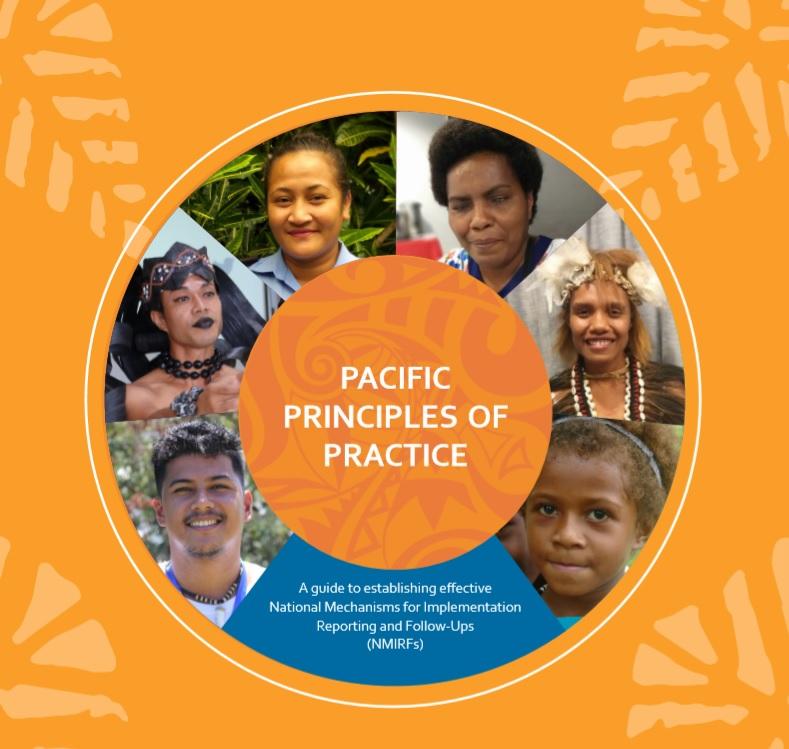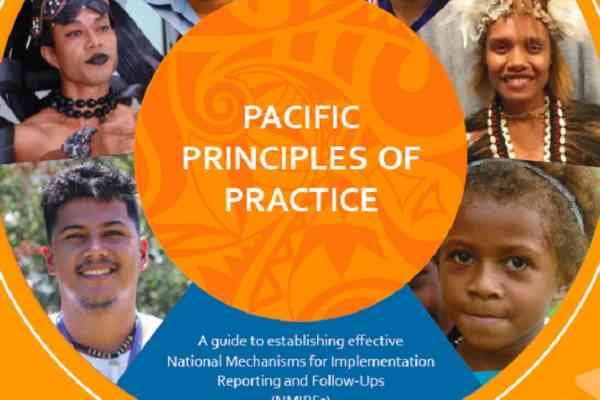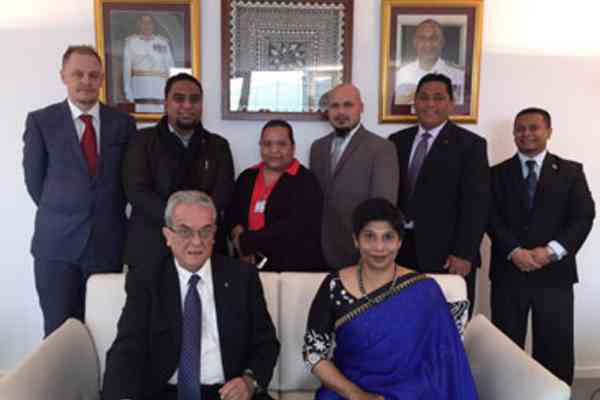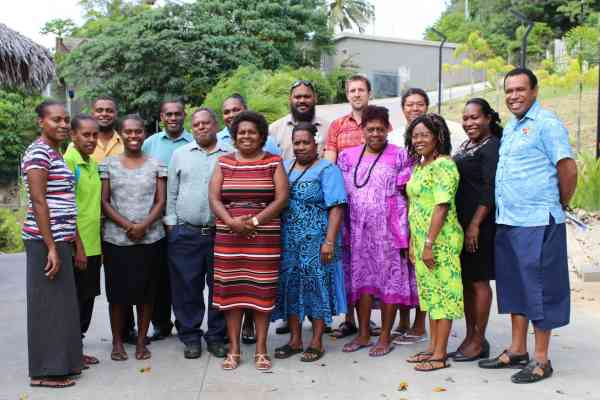(Article disponible en anglais uniquement)
‘Pacific Principles of Practice’ launched as a guide towards global human rights implementation
On 3 July, the Pacific Principles of Practice (Pacific Principles) of National Mechanisms for Implementation, Reporting and Follow-up (NMIRFs) was launched during a virtual side event at the 44th Session of the Human Rights Council.
The Pacific Principles are the result of a group of UN member States in the Pacific (Fiji, Federated States of Micronesia, Kiribati, Republic of Marshall Islands (RMI), Palau, Papua New Guinea, Samoa and Vanuatu) coming together to agree on how to ensure better implementation (as well as tracking and measuring of progress) of their human rights and sustainable development commitments.
The launch was convened by the Pacific Community’s Regional Rights Resource Team (SPC RRRT) in partnership with the Universal Rights Group (URG), the Fiji and Australian Missions in Geneva, and supported by the Pacific Island Countries that participated in developing the Pacific Principles. Over 60 human rights practitioners, government representatives, international organisations, NGOs and CSOs, participated in the virtual launch.
Mr Miles Young, Director of RRRT, said that other regions around the world are looking at the Pacific Principles to inform their own work on NMIRFs. “The Pacific is leading the way globally on NMIRFs. I am grateful to the participating governments for working together to reach consensus on the Pacific Principles – this is an excellent example of regionalism at its best. The Pacific should be proud to know that other regions around the world are now looking at the Pacific Principles to inform their own work on NMIRFs.”
Read more on the origins of the Pacific Principles here: https://bit.ly/3gElLkI.
Permanent Representative of the Republic of Marshall Islands (RMI) to the Human Rights Council in Geneva, Her Excellency, Ambassador Doreen de Brum reiterated the sentiments of Mr Young and added that the consensus ensured that all PICs are committed to using this framework as the Pacific’s guiding document of NMIRF and “in turn enhance our ability to continue to act in the spirit of regional corporation and peer to peer learning in developing our national mechanisms by making our experiences comparable and the resources we are developing relevant through a unified guiding document.”
Honorable Casten Nemra, Minister of Foreign Affairs and Trade of RMI highlighted during the launch that implementation; reporting and follow-ups for international treaties and commitments can be a challenging enterprise for small island countries given the limited human and financial resources.
“In our view, the Pacific Principles is a practical way forward for the Pacific region to meet its human rights obligations,” Hon. Nemra said.
Rose Martin, RRRTs’ Senior Human Rights Advisor, shared that the journey of having NMIRFs as state mechanisms to track implementation and reporting of human rights in the Pacific region was introduced by the Office of the High Commissioner of Human Rights and many PICs have since established their coordinated human rights mechanisms.
“There are now seven PICs who have a National Human Rights Committee or Task Force while others have some form of mechanism or task force focused on one particular treaty or the Universal Periodic Review,” she said.
Ms Martin stated that the countries that have national coordinating mechanism/taskforce realised that “having a structure in place is paying off by enabling them to get on top of outstanding reports, identifying implementation gaps and receiving targeted technical assistance from RRRT”.
While some countries in the Pacific are taking baby-steps at developing their NMIRFs, others such as Samoa have taken it a step further with the use of technological tools to assist in the considerable task of coordinating implementation and tracking of recommendations from international treaty bodies.
Peseta Noumea Simi, CEO of the Samoa Ministry of Foreign Affairs and Trade and Chair of the National NMIRF of Samoa shared via a video statement the importance of Samoa’s NMIRF in easing the reporting burden since its establishment in 2016 and the use of an online tool: SADATA to track implementation.
“To complement the efforts of our NMIRF, Samoa has used a web application: SADATA, to help us guide implementation and reporting on human rights obligations. The tool helped the NMIRF develop a National Implementation Plan by clustering recommendations, identifying implementation gaps and regularly collecting data,” Ms Simi stated.
While it is hoped that the Pacific Principles will be potentially used as a guide to assist other regions and countries across the globe in strengthening and establishing their NMIRFs, for the Pacific region, the work does not end here.
Mr Young highlighted that this is just the first step in building the momentum of NMIRFs in the Pacific and that SPC RRRT stands ready to provide technical assistance upon request to the countries in the region establishing or strengthening NMIRFs and SADATA upgrades as a tool to help with implementation.
Read the full Pacific Principles of Practice on the following link:
- https://rrrt.spc.int/resources/publications/pacific-principles-of-practice
- https://www.spc.int/updates/blog/2020/07/introducing-the-pacific-principles-of-practice-for-effective-national
Media Contact:
Kalpana Nizarat, Communications and Visibility Officer. Email: [email protected]



